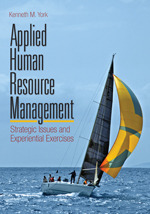State, Power, Crime
- Roy Coleman - University of Liverpool, UK
- Joe Sim - Liverpool John Moore's University, UK
- Steve Tombs - Open University, UK, Liverpool John Moores University, UK
- David Whyte - University of Liverpool, UK
Featuring contributions by many of the leading scholars in the field, this seminal text explores the key themes and debates on state power today, in relation to crime and social order. It critically evaluates a range of substantive areas of criminological concern, including terrorism, surveillance, violence, and the media.
Key Features
- Gives historical overviews of key theories about state power
- Provides an assessment of the relationship between crime, criminal justice, and the state
- Analyzes the development of law and order policy
- Discusses the impact of structural fissures such as gender, race and sexuality
- Presents an overview of current research and writing
- Offers critical reflection on the future direction of research and analysis
- Provides advice on further reading
In 1978, with the publication of Hall et al's Policing the Crisis and Poulantzas's State, Power, Socialism, the complexity of the state's interventions in maintaining a capitalist social order were laid bare for critical criminological analysis. State, Power, Crime offers an up to date and comprehensive examination of the challenges posed by state power, in relation to both criminal and social justice. It is essential reading for upper level undergraduates and postgraduates in criminology, criminal justice and sociology.









